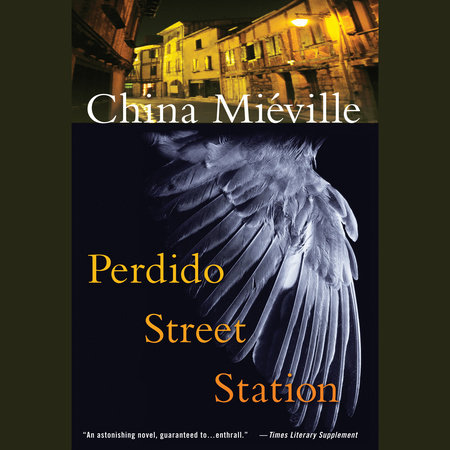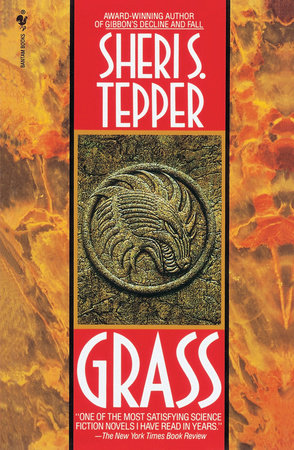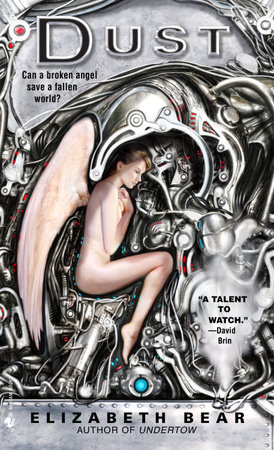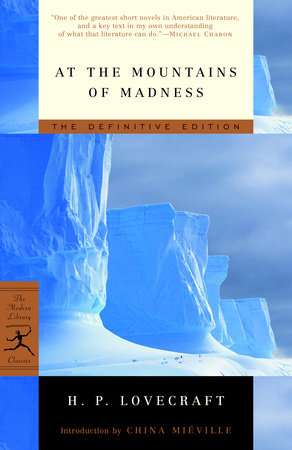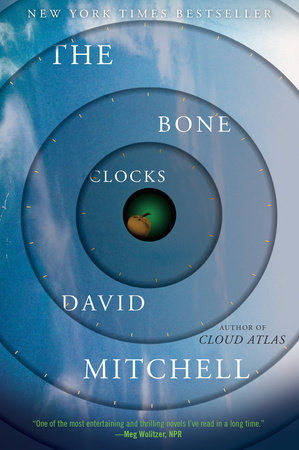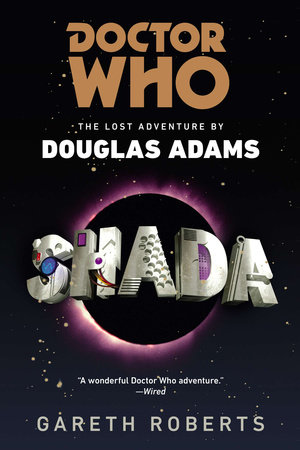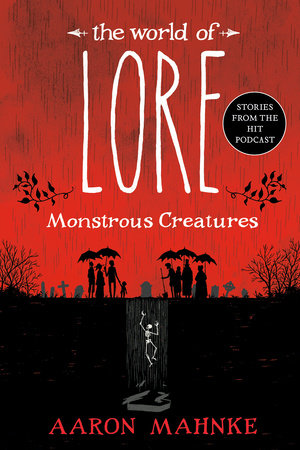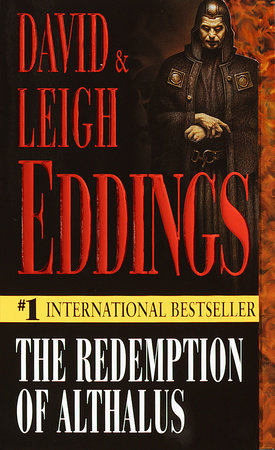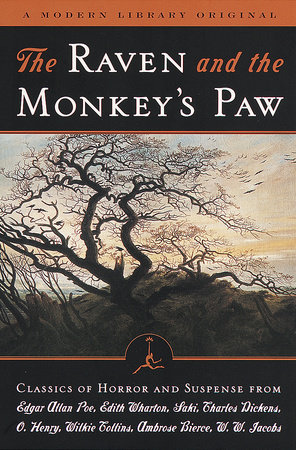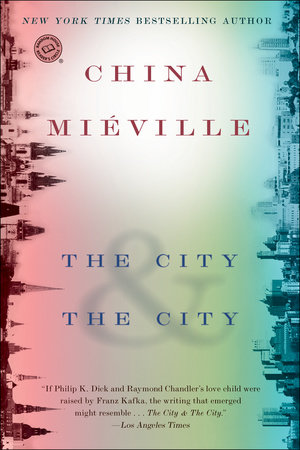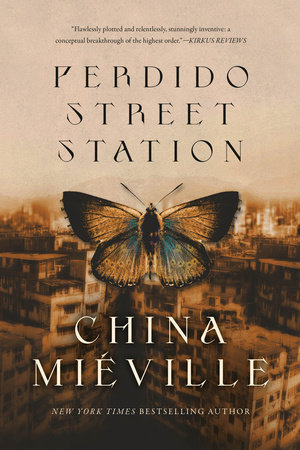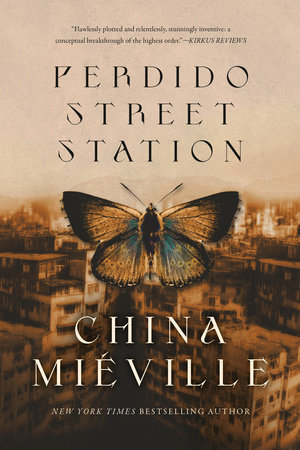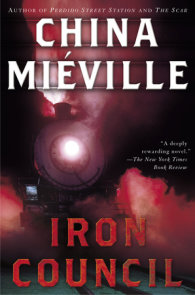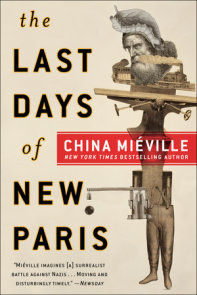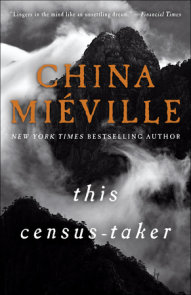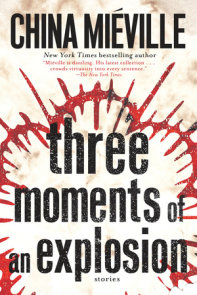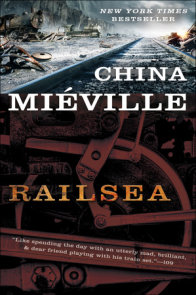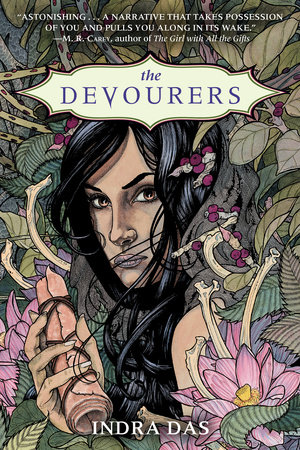Author Q&A
Q. Tell us a little about your new book PERDIDO STREET STATION.
China Mieville: PERDIDO STREET STATION is about a huge, violent city,
and the clumsy unfolding of a nightmare inside it. I wanted to write a
book that was set in a believable alternative world. It was a world – a city
particularly – that I’d been playing with and creating for some years,
and the development involved evaluating a lot of the stuff I’d already
worked on, discarding some, reshaping some, that sort of thing.
The story was second. I was kicking around an idea about a radically
egalitarian society that through its egalitarianism was deeply concerned
with choice, and freedom for the individual (a riposte to the
anti-socialist slurs of the right-wing). What shape would discontent and
crime take in that society? And what if someone from there came to New
Crobuzon, which was very far from that model? Why would s/he come?
It is a dark book, and I hope that readers of horror and dark fantasy
will still consider it something for them. It’s urban gothic dark
fantasy again, only set in another world. It’s a fantasy novel — in that
it’s set in a secondary world inhabited by humans alongside other races,
and there’s magic but this is very far from epic or heroic fantasy. It’s
sort of unheroic, unepic fantasy.
Q. Talk a bit more about world-building.
CM: Histories, laws, cultures, aesthetics — worlds — are colossal, and
colossally complex. There is no way you can ever tell the story of a
whole world. No matter how detailed your timeline or carefully
illustrated your bestiary, you can’t possibly explain everything. If
something’s not important to the narrative, then don’t try — there are
only so many info-dumps a story can take, and I save mine for the stuff
that the reader has to understand.
There are various aspects to creating a believable world. The most
important for me is atmosphere – depending on what the feelings you want
to communicate are, the world you create will have a different shape.
There were other inspirations. I haven’t played role playing games in
years, but I quite enjoy browsing their rulebooks. I like the kind of
obsessive detailed world-creation the best of them involve.
I love bestiaries; a lot of the pleasure is in trying to create
original, plausible, interesting, fantastic creatures. But obviously
that’s not enough. You have to have a story, and you’ve got to be
careful not to make it like a guidebook with a story in it, but a story
that happens to take place in another world. And ideally both the story
and the world should keep you surprised.
Q. In PERDIDO STREET STATION, the city of New Crobuzon is very much a
living, breathing character. Likewise, in your first novel King Rat, the
city of London took on a life of it’s own. You seem fascinated by the
idea of the city as a living thing.
CM:I am interested in cities because they are where social conflict is
sharpest, where social tension and resistance are strongest. It is a
political choice but also an aesthetic one – cities are places where
different sorts of architecture, different sorts of social mapping,
coincide and conflict. I also wanted to write urban fantasy because of
my debt to other writers — Mervyn Peake, and Mike Harrison and the Mary
Gentle of Rats and Gargoyles –writers who write fantasy with real
politics and economics in them. I was interested in having a fantasy
with capitalist social relations, and capitalism is urban.
I don’t have a taste for the sort of historical fantasy that is set in
an unreal countryside with a hierarchical system that is not even real
feudalism. Part of this is that I just don’t like the countryside —
rural idiocy and sacks of potatoes, as far as I am concerned. In our
real world, the country has become just an adjunct of the town and is of
less interest as a result. Books about cities are just more exciting —
when my surviving characters escape New Crobuzon at the end, it is to go
to another city.
Q: Let’s talk a bit about your politics. You’re a politically- active
member of the International Socialist Tendency.
CM: I’ve been actively involved for some years now, and am looking forward
to getting more active with a spin-off called ATAC – the Arts Tendency
Against Capitalism. I get very tired of people thinking that being a
socialist means supporting North Korea or the erstwhile USSR (it
doesn’t).
Q. What prompted you to become political?
CM: Growing up with a single parent in an ethnically mixed working class
area of London was a good start. And then going to posh schools full of
right wing people who came out with the most outrageous homophobic and
racist drivel, and then going to university and realizing that there was
a way of making sense of all the awful stuff going on as part of the
same phenomenon, a world system that would never reform itself.
It was through being at university that I got interested in serious
socialism, as opposed to flaky socialism, and started reading Marx,
which had a huge effect on me. The thing is, I am not someone who
particularly enjoys the process of politics. I am lazy and all I want to
do is read books about monsters all day. But capitalism doesn’t let me
get one with that, because every time I turn on the news, there are more
dreadful things going on, and it’s impossible to ignore. And it’s all
unnecessary.
Q: So you like to read about monsters; what about film monsters? Do you
have a favorite?
CM: The problem is, of course, that one monster is not enough (is one
monster ever enough…?) I want loads now. These answers are therefore
only true for today. It’s a tie: The Thing from John Carpenter’s, uh,
The Thing, and Irena Dubrovna from Lewton and Tourneur’s Cat People.
Why? Well, with The Thing, because it’s probably the best approximation
of Lovecraftiana on screen, and because it’s a very intelligent (and
impressively gross) representation of a shape-shifter. They wouldn’t
just be shapeless protoplasm, they’d make limbs and organs for
themselves. And Irena Dubrovna because of her facial expression of
amused cruelty when she steps in human form to the side of the swimming
pool.
Q: Perdido Street Station is very cinematic in scope; was that your
intention?
CM: When I imagine a scene, I imagine it visually, but above all
cinematically–I often find myself panning through a scene like a
camera. This is how I work–and it means that I am drawn to movie
imagery. This means that sometimes you have to work hard to police the
cliches and then come back and decide that the cliche is what you need
and what you can get away with. I have scripted and cast both my novels
in my head.
Q. How would you cast Perdido Street Station then?
CM: Hmm…Vermishank would be Martin Landau, I think. Isaac could be LL Cool J
in ten years time, with a big bushy beard, doing an English accent.
(Right….) Lin? Doesn’t really matter, does it? Anyone skinny wearing a
rubber bug head. I’m working on the others.
Q. Your mother now lives in Cuba and you spend a great deal of time
there. What is the science-fiction community like in Cuba?
CM: The Cuban SF scene is really interesting because it’s very, very lively.
They organize their own conventions (one of which I spoke at), they
publish their own books. There’s not such a sharp distinction between
genre and mainstream literature as there is in Britain and the US, so
‘lit-fic’ writers are likely to hang with SF writers at the literary
institutes. There’s an amazing range of influences. They had various
(very good) Eastern European SF writers who got translated, such as (I
think) Lem, the Strugatskis, etc. But they also have very treasured
paperback editions of US SF, mostly Golden Age stuff from the fifties
and sixties, but some more recent, which they all share round and
carefully read. Even those who can’t speak English well can almost all
read it. They are some years behind – they’re getting very into
Cyberpunk now. The thing is that they have a considered and erudite but
partial knowledge – what they could get their hands on, they know inside
out, but there are holes, obviously. Not much of the New Worlds
avant-garde wave – I saw no Ballard, no Harrison, some Moorcock but
mostly his pulpest fantasies (I speak as a fan) – which is a shame. Some
of the SF writers – all of whom know each other, and who constitute a
sub-group in a very supportive and small literary scene – are published
in Latin America and Europe, most are published (paid a pittance, if at
all) only in Cuba. They’re hungry and fascinated for any discussion
about Western SF, and what’s going on – books and films, everything.
Whenever I go over there, I bring a bunch of paperbacks and leave them.
There’s also a big comic scene, which blurs at the edges with the SF
scene, as elsewhere.
Q. Some people call you a fantasy writer; others classify you as a
horror or science-fiction writer. How would you classify yourself?
CM: I use the term ‘fantastic literature’ as a way of bracketing the genres
of supernatural horror, epic fantasy, low fantasy and science fiction.
The term I would like to reinvigorate is ‘weird fiction.’ There’s a
radical moment in all weird fiction and that moment is the positing of
the impossible as true. Whether you make that what the story’s all about
or you simply have it as a starting point, that to me is a radical
moment. Of course, all this stuff is for nothing if you can’t keep
people interested in the actual story…
Essentially I’m a fantasy writer, though in a different tradition that
stresses the macabre, the surreal, the decadent, the lush, the grotesque
– a tradition of grotesquerie, cruelty, sadness and alienation. The
surrealist aesthetic is an alienating aesthetic, the opposite of
Tolkien’s consolatory, comforting aesthetic. Part of that means not
shying away when the dynamic of the aesthetic is quite cruel. In real
life I’m quite sentimental so I overcompensate in my fiction.
Q. You mentioned Tolkien. Many consider him the father of modern
fantasy.
CM: That’s unfortunate because it masks the alternative tradition of weird
fiction: authors like William Hope Hodgeson, Robert Chambers, Clark
Ashton Smith, H. P. Lovecraftt, and certainly the Weird Tales tradition
with Fritz Leiber, and then Mervyn Peake.
Fantasy’s a frustrating genre in that so much that’s published in it is
so derivative and formulaic, and yet it has the potential to be — and
sometimes is — the most radical literary form out there. In PERDIDO
STREET STATION, I’ve tried to write a fantasy novel without stereotypes.
No elves, no dwarfs. Too often, that sort of thing is used as a
shorthand for characterization, just a quickhand way of letting the
reader know that a character is noble, or stolid, or whatever. And I
hate the tendency towards moral absolutism in fantasy, the idea that
orcs/trolls/whatever are bad, as a kind of racial characteristic. I know
we’ve moved a long way from there recently, and there’s a lot of very
good fantasy that really avoids that kind of laziness, but there’s still
a lot out there that doesn’t, unfortunately. I’m not saying,
incidentally, that you can’t write good, imaginative fantasy with elves
in it, just that I can’t. I also dislike Destiny and Fate a whole lot,
and it features heavily in a lot of fantasy. If I discover that some
character is fulfilling an Ancient Prophecy I tend to lose interest. I’m
interested in the opposite of That Which Has Been Foretold, which is
that which people make happen.
Q. So who would you consider strong influences in your own writing?
CM: Philip K. Dick is probably my single favourite writer. I read something
like Martian Timeslip or The Three Stigmata of Palmer Eldritch and I
feel that literature has been done, and that the rest of us are just
adding footnotes. And to those who still say that SF isn’t any good at
characterization I have three words: A Scanner Darkly.
M. John Harrison is astonishingly good. Mervyn Peake, Gene Wolfe, Tim
Powers, Shirley Jackson, Robert Aickman, Lewis Carroll, Stanislaw Lem,
Lucius Shepard, Thomas Disch… A few years ago I got into a lot of late
19th/early 20th century slipstream stuff, that straddles SF, fantasy and
horror. The whole Weird Fiction thing I mentioned before. The obvious
name is Lovecraft, and I enjoy his stuff, but I prefer William Hope
Hodgson, and I like people like E.H. Visiak, Robert Chambers and David
Lindsay, and classics like Ambrose Bierce, MR James, Wells mainly for
The Island of Dr Moreau. Some of those people like Lovecraft and Hodgson
are odd, in that their writing is horribly, horribly flawed, awkwardly
written, overblown etc… and yet they had something. I read Hodgson’s
Carnacki stories, for example, especially something like The Hog, and
about a third of me inside is laughing with derision, while the other
two-thirds is transfixed.
Borges, Iain Sinclair, William Golding, Kafka, Bulgakov, The Capek
Brothers, the Strugatski Brothers, Dambudzo Marechera, Jonathan Swift…
The whole surrealist axis, from Lautreamont through Breton and Ernst
onwards. And there are loads of writers who haunt me for years, on the
strength of a single short story. Like Julio Cortazar, solely on the
strength of the fucking peerless House Taken Over, or E.L.White for
Lukundoo, or Scott Bradfield, who is an all-round great writer, but
whose The Secret Life of Houses is achingly perfect.
Q. What about non-genre writers?
CM: A lot of my favourite ‘lit-fic’ writers I like for the same sorts of
reasons that I like genre writers. Like Charlotte Bronte: Jane Eyre is
one of my all-time top ten books, an incredible work of dark
imagination. I love it because I get the same kind of breathless
dislocation and fearful longing from it I do from the best genre
literature.
My favourite scene in that book is when she’s ravenous and she tries to
buy a bun and she has no money, so she tries to swap her gloves for one,
and the baker won’t take them. It freaks me out!
It’s such a cold, terrifying scene: this well-dressed, starving,
wild-eyed woman standing, begging fiercely for food, holding out these
gloves with trembling hands, and the utter alienation and suspicion of
the shop-woman. And she won’t sell her the bun! How’s that for
undermining the surface rationality of the everyday? Gives the Cthulhu
monsters bulging under reality’s skin a run for their money, I reckon.
Two normal human beings, and one would rather let the other starve than
accept a commodity rather than money, even though the commodity is worth
more than the money required, and we totally understand her point of
view!!! The horror, the horror…
Q. Last question…what’s the deal with your name, China?
CM: Because my parents were hippies, and they looked through the dictionary
for a "beautiful word.’ It’s also Cockney rhyming slang for ‘mate.’
Basically, in Cockney Rhyming Slang a phrase that rhymes with the word
in question comes to take its place, but then you get rid of the bit
that actually rhymes. That’s how come my name means friend: ‘my old
china’ means ‘my old mate’ because ‘china plate’ rhymes with ‘mate.’
Apparently they nearly settled on ‘Banyan’ but thankfully flicked
forward a few pages.
